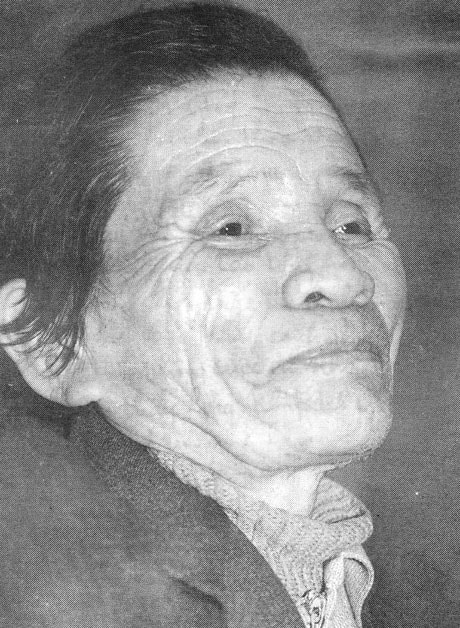Nghe - Tinh Soviets with the pen of Tran Huu Thung
(Baonghean) -Born into a real farming family in Trung Phuong village, Dien Minh commune, Dien Chau district, the hometown of poet Tran Huu Thung (1923-1999) has the famous Bung river, associated with many stories that have become legends...
After the country's reunification in 1976, Tran Huu Thung returned to his hometown to learn more about the reality, planning to write a memoir. Filled with images, details, and characters he encountered here and there associated with the Bung River - the river from his childhood, which he often wondered about not knowing where it originated from, but winding in hundreds of curves like a tangled thread hanging on the ground - the poet was lucky to have a "reunion" with Mr. Ba, a person from the neighboring commune, who used to be the village's gong maker.

Tran Huu Thung(Photo taken in 1995).
Mr. Ba told about the demonstration in Dien Chau district in 1931. Hundreds of participants were shot and killed miserably by the French. The bodies could not be collected, some were carried upstream by the tide of the Bung River. The village chief ordered Mr. Ba to take a pole and walk along the Bung River, the section that flowed through the village, and whenever he saw a body washed ashore, he would use the pole to push it away. The thing is, whichever village a communist body washed ashore, that village had to report it, causing so much trouble! Along the long stretch of river, Mr. Ba continued walking with the pole, until noon on the third day, when he suddenly saw a body stuck to the base of a banyan tree. The body was a man, with ragged clothes, a rice basket under his arm, and a string of pickled eggplants slung across his chest. Feeling so pitiful, thinking of the good fortune, Mr. Ba dragged the body to the shore, then hastily buried it in a hole in the ground on a nearby sandbar. The next morning, a woman carrying her child was searching along the river. When she asked for specific information, Mr. Ba kindly and quietly showed her where her husband was buried.
Then every year, on the anniversary of his death, the woman carried her child to Mr. Ba's house to give thanks, and brought a bowl of rice and incense to the grave to worship. Three years later, relatives secretly exhumed the body and brought it back. Mr. Ba's house became a place of close affection for that family. And the child she carried on her back all those years ago, now has a good education and has become an agricultural engineer!
While listening to the story, Tran Huu Thung wrote it down in his notebook, as if he had "struck gold". This valuable historical detail of 1931 contributed greatly to the haunting and successful creation of "Memory of the Rice Fields" - a memoir that was drafted in 1976 and not completed until 1986. That same year, "Memory of the Rice Fields" received first prize in the memoir contest organized by the Voice of Vietnam and the Literature and Arts Newspaper...
Devoting all his life capital, strength and artistic talent to the theme of Nghe-Tinh Soviets in his homeland, poet Tran Huu Thung, must also mention the poem Loi flute match (Nghe-Tinh Publishing House, 1985) for children, and especially the film script Ngay ay ben song Lam, which was made into a film in 1980. Looking back, his works on the theme of Nghe-Tinh Soviets were also quite rich and impressive. Not counting anonymous and famous poetry, just prose and theater, we can mention Truong Thi Worker's Hamlet (novel by Hoang Ngoc Anh), Ben Thuy Flag (memoir by Minh Hue), Story of Soviet Female Soldier (many authors), Lam River Sunlight (novel by Ba Dung), Rang Dong Festival (heroic song by Vo Van Truc), Lam River Girl (opera by Nguyen Trung Phong), Hong Mountain Fire Spot (opera by The Ky), Rang Dong (play by Hoc Phi), Previous People's Footprints (cai luong by Thuy Linh - Hoang Yen)...
When writing the introduction to the Tran Huu Thung Collection, published by the Literature Publishing House in 1998, poet Vo Van Truc, a close friend of his hometown, emotionally recalled: At that time, the Hanoi Film Studio discussed with Mr. Thung to write a film script about the Nghe - Tinh Soviets. The material was already available, he accepted and wrote enthusiastically. The Nghe - Tinh Soviets was a big topic, not easy to write well, a number of writers and poets from Nghe An devoted themselves to writing memoirs, novels, long poems... But perhaps, there are few works that surpass the film script of That Day on the Lam River!
Kim Hung






